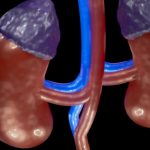If you suffer from heartburn, acid reflux or other digestive complaints, it is incredibly easy to take an antacid drug in the hopes of gaining some relief. But if you start relying on these medications to consistently ease your symptoms, you could be making one of the biggest mistakes of your life.
In recent years, the safety of these meds – both over-the-counter and prescription – has been called into question. And with all of the evidence I’ve seen, I can honestly say that they present a clear and present danger when it comes to your health.
I’m talking about proton pump inhibitors, or PPI’s. Some of the popular brands that fall into this category include Nexium, Prilosec, Protonix and Prevacid… also known by their generic names; esomeprazole, omeprazole, lansoprazole and pantoprazole.
Over the years, this class of drugs has had several FDA warnings attached to them. These include…
- Possible increased risk of fractures of the hip, wrist, and spine.
- Low serum magnesium levels that, in some cases, cannot be improved with magnesium supplementation. (PPIs also reduce B12 levels.)
- Increased risk of Clostridium difficile, a life-threatening gut infection that causes terrible pain and bloody stool.
But the dangers go well beyond these official government warnings.
Heartburn Drugs Put Your Health at Risk
No drug comes without side effects, even when they are sold over-the-counter. And PPIs are a perfect example of this. Some of the side effects are just horrible.
A 2022 analysis of 13 separate studies showed that, on average, PPI users have an 80% increased risk of gastric cancer compared to non-users.
But here’s the thing about OTC PPIs. They are only intended for a 14-day course of treatment, up to three times per year. Yet, many people use them day in and day out, year after year.
So when another team of researchers narrowed the results down to long-term PPI users only, they discovered these long haulers had more than a two-fold increase in risk for gastric cancer!
And that’s not all.
A new study released in October, 2023 ties long-term PPI use to dementia risk. They learned that people who take these drugs for 4.5 years or longer have a 33% higher risk of developing dementia than people who never took them.
PPIs are also associated with a significantly increased risk of chronic kidney disease, higher chances of stroke or heart attack and a greater risk of pneumonia.
And here’s the scariest news of all…
It’s estimated that as many as 70% of people who take PPIs have no appropriate indication for using them!
Don’t Risk Your Health Over Heartburn
As far as I’m concerned, the risks of PPI use outweigh any potential short-term benefit. Especially in people who are taking them with no clinical indication for it. And this is most true when it comes to older patients.
It’s important to remember that heartburn isn’t always about your stomach acid. More often than not, it’s something else that is causing that uncomfortable feeling.
Being overweight can trigger it. Excess weight causes a backflow of acid into the esophagus. So it’s a good idea to start engaging in activities and eating habits that can help drop those excess pounds.
Some patients find that caffeine, spicy foods, acidic foods, fried foods and fatty foods can all cause heartburn symptoms. If you can find your triggers, you’ll know which foods to avoid.
Carbonated beverages are another trigger. They place a great deal of pressure on your esophagus that promotes reflux. So it’s a good idea to steer clear of them. Opt for water, herbal teas and low-acid smoothies.
You could also have a weak lower esophageal sphincter. This sphincter clamps down to prevent undigested food from pushing upwards and burning the lining of the esophagus. When it is weak, or “leaky,” it causes a backwash of the stomach contents.
Melatonin can help with that. It has the ability to tighten the sphincter, keep hydrochloric acid in the stomach where it belongs, and protect the linings of the esophagus and gastrointestinal mucosa. As little as 3 mg at bedtime can help.
SOURCES:
Ito T, Jensen RT. Association of long-term proton pump inhibitor therapy with bone fractures and effects on absorption of calcium, vitamin B12, iron, and magnesium. Curr Gastroenterol Rep. 2010 Dec;12(6):448-57.
FDA Drug Safety Communication: Possible increased risk of fractures of the hip, wrist, and spine with the use of proton pump inhibitors. Us Food and Drug Administration. May 2010.
FDA Drug Safety Communication: Low magnesium levels can be associated with long-term use of Proton Pump Inhibitor drugs (PPIs). Us Food and Drug Administration. Mar 2011.
FDA Drug Safety Communication: Clostridium difficile associated diarrhea can be associated with stomach acid drugs known as proton pump inhibitors (PPIs). Us Food and Drug Administration. Feb 2012.
Poly TN, Lin MC, Syed-Abdul S, Huang CW, Yang HC, Li YJ. Proton Pump Inhibitor Use and Risk of Gastric Cancer: Current Evidence from Epidemiological Studies and Critical Appraisal. Cancers (Basel). 2022 Jun 21;14(13):3052.
Cheung KS, Leung WK. Long-term use of proton-pump inhibitors and risk of gastric cancer: a review of the current evidence. Therap Adv Gastroenterol. 2019 Mar 11;12:1756284819834511.
Northuis CA, Bell EJ, Lutsey PL, George KM, Gottesman RF, Mosley TH, Whitsel EA, Lakshminarayan K. Cumulative Use of Proton Pump Inhibitors and Risk of Dementia: The Atherosclerosis Risk in Communities Study. Neurology. 2023 Oct 31;101(18):e1771-e1778.
Wu CC, Liao MH, Kung WM, Wang YC. Proton Pump Inhibitors and Risk of Chronic Kidney Disease: Evidence from Observational Studies. J Clin Med. 2023 Mar 15;12(6):2262.
Yang M, He Q, Gao F, Nirantharakumar K, Veenith T, Qin X, Page AT, Wong MCS, Huang J, Kuo ZC, Xia B, Zhang C, He Y, Meng W, Yuan J, Pan Y. Regular use of proton-pump inhibitors and risk of stroke: a population-based cohort study and meta-analysis of randomized-controlled trials. BMC Med. 2021 Dec 3;19(1):316.
Ariel H, Cooke JP. Cardiovascular Risk of Proton Pump Inhibitors. Methodist Debakey Cardiovasc J. 2019 Jul-Sep;15(3):214-219.
Jaynes M, Kumar AB. The risks of long-term use of proton pump inhibitors: a critical review. Ther Adv Drug Saf. 2018 Nov 19;10:2042098618809927.
Zirk-Sadowski J, Masoli JA, Delgado J, Hamilton W, Strain WD, Henley W, Melzer D, Ble A. Proton-Pump Inhibitors and Long-Term Risk of Community-Acquired Pneumonia in Older Adults. J Am Geriatr Soc. 2018 Jul;66(7):1332-1338.
Lehault WB, Hughes DM. Review of the Long-Term Effects of Proton Pump Inhibitors. Fed Pract. 2017 Feb;34(2):19-23.
Bang CS, Yang YJ, Baik GH. Melatonin for the treatment of gastroesophageal reflux disease; protocol for a systematic review and meta-analysis. Medicine (Baltimore). 2019 Jan;98(4):e14241.




